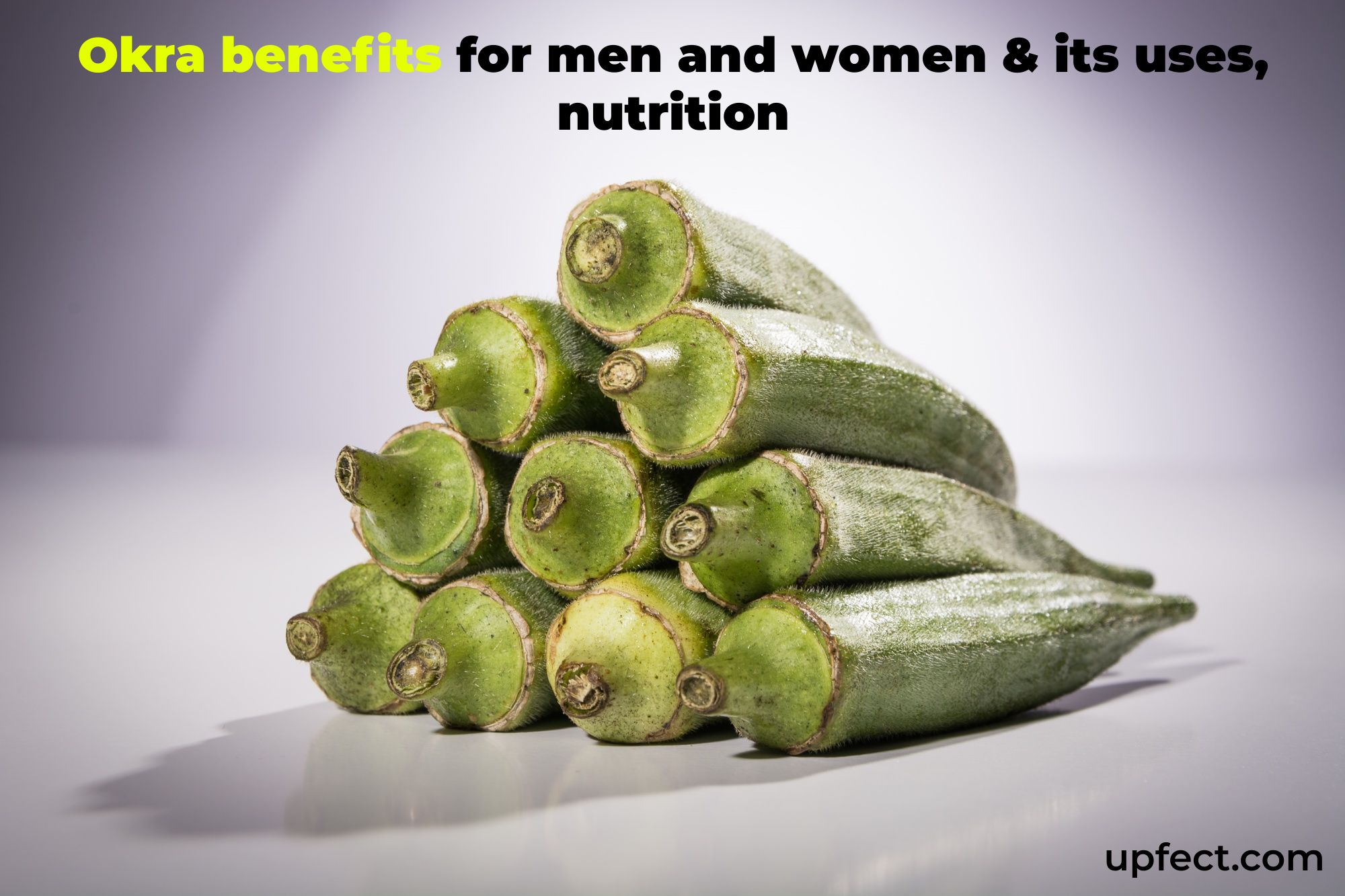
What is Okra?
Okra is a vegetable with highly nutritional and medicinal properties. Okra, also known as lady’s fingers or gumbo. Okra (Abelmoschus esculentus) is thought to have originated in Ethiopia, although it quickly became widely cultivated in various parts of the world, including West Africa, the Middle East, India and the Americas.
Perforated along its length, the green, slightly fuzzy pod contains rows of edible seeds that release a mucilaginous (sticky, viscous) liquid when cut and cooked, making it used to thicken soup and stew recipes such as Cajun gumbo.
Okra is one of the vegetables that are very beneficial for health. Okra bhaji, okra curry is loved by almost everyone. In a report published on healthshots.com, Indian nutritionist Avni Kaul said, “Keeping okra in the food list is beneficial. This nutritious vegetable is low in calories, high in fiber and packed with essential nutrients.”
Okra is high in fiber, vitamins A, C and folate. There are also vitamins K, B, iron, potassium, zinc, calcium, manganese, magnesium, antioxidants and beta-carotene. Although it is a winter vegetable, this vegetable is available almost throughout the year due to its great demand and popularity. It can be cultivated all year round. But generally it is cultivated during summer.
Eating okra seeds is a good way to supplement unsaturated fatty acids and essential amino acids, and okra leaves can also be used in cooking as green vegetables like dandelion. In addition to direct use, okra extract can be used as a food additive.
Okra Nutrition
According to the U.S. Department of Agriculture (USDA) National Nutrient Database, 100 grams of raw okra contains:
- Water: 89.6 g
- Calories: 33 kcal
- Carbohydrates: 7.45 g
- Protein: 1.93 g
- Fiber: 3.2 g
- Sugar: 1.48 g
More sources of cinnamon:
- Calcium: 82 mg
- Iron: 0.62 mg
- Magnesium: 57 mg
- Phosphorus: 61 mg
- Potassium: 299 mg
- Zinc: 0.58 mg
- Niacin: 1 mg
- Choline: 12.3 mg
- Vitamin C: 23 g
- Vitamin E: 0.27 g
Okra Uses
Polysaccharides present in okra are used in sweet frozen foods such as ice cream, as well as bakery products, due to their health benefits and longevity.↗️
Fried Okra: Sliced okra is fried in oil. It produces a wonderful taste.
Okra Stew (Gambo): The South American dish combines okra with tomatoes, onions, peppers, and various meats or seafood to create a rich and flavorful stew.
Okra Curry: Okra is commonly used to make a delicious curry with spices and tomatoes, enjoyed as a side dish with rice.
Grilled Okra: Grilled okra gives it a smoky flavor and burnt touch.
How to use okra water
Okra water is a popular home remedy that has health benefits for managing diabetes, improving digestion and weight loss. Here’s how you can prepare and use okra water:
Ingredients:
Fresh okra pods (2-3 pieces)
Water (1 glass)
Instructions:
- Wash okra: Rinse the okra pods thoroughly under running water to remove dirt.
- Edge trimming: Using a clean, sharp knife, cut off both ends of each okra pod.
- Slice the Okra: Cut the okra pods lengthwise into thin slices.
- Soak the okra: Put chopped okra in a glass of water. Allow the okra to soak overnight, preferably 8-12 hours. During this time, okra’s beneficial components, including its soluble fiber, will enter the water.
- Strain and drink: In the morning, strain the okra water to remove the okra pieces. Drink okra water on an empty stomach, preferably in the morning, before breakfast.
Benefits of okra
Okra offers various health benefits for men and women. Here are some benefits of eating okra.
Digestive health
Okra is an excellent source of dietary fiber, which adds bulk to stool and facilitates bowel movements, resulting in healthy digestion. Regular consumption of okra helps to prevent constipation and promotes a healthy gastrointestinal system.
Okra is one of the rich sources of mucilage substance which helps in smooth peristalsis of digested food through the intestines and eases the condition of constipation.↗️
Okra is used for the treatment of digestive problems. Its polysaccharides are present in okra, which possess considerable astringent properties (as they help remove bacteria and adhesives). Okra is full of dietary fiber, which is essential for colon health and beneficial for digestive health. Okra’s fiber helps cleanse the intestinal system, allowing the colon to function at a higher rate. In addition, vitamin A in okra plays a healthy role in supporting the mucous membranes, digestive system, and functioning adequately.

Prevents Cancer
Due to its high amount of antioxidants, this prevents the formation of harmful toxic substances in our body. As a result, the risk of cancer cells is greatly reduced. An important nutrient in okra is quercetin, a powerful antioxidant that helps neutralize dangerous free radicals in the body, preventing cell damage and fighting cancer.
The anti-tumor effects of lectins discovered from okra were investigated in human breast cancer and skin fibroblast cells. It was observed that the cells induced significant cell growth inhibition (63%). Thus, okra in its native form promotes selective antitumor effects on human breast cancer cells and may represent a potential therapeutic to combat human breast cancer.↗️
Studies have shown that okra extract can induce apoptosis; a process that leads to the self-destruction of cancer cells, okra prevents their proliferation and spread in the body. Additionally, okra’s high fiber content can help cleanse the colon and eliminate toxins, reducing the risk of colorectal cancer.
Flavonoids can achieve anticancer effects in three ways: antioxidant effects, promoting anticancer cytokine secretion, and inhibiting cancer cell proliferation. As mentioned, okra is rich in polyphenols and flavonoids, regular consumption of okra can reduce the risk of certain cancers.↗️
Hyperin is an important flavonoid component of okra. Hyperin shows anticancer potential by establishing an anti-proliferative, anti-migratory and anti-invasive environment in gastric cancer cells.↗️

Manage Diabetes
Studies have shown that okra extract can significantly lower blood sugar levels and improve insulin action, making it an excellent addition to the diet of those struggling with diabetes.
Scientific studies have shown that many diabetics experience low blood sugar levels. In fact, in countries like Turkey, roasted seeds have been used as a traditional diabetes medicine for generations.
In one study, published 2011 in the Journal of Pharmacy & BioAllied Sciences, researchers in India found that diabetic mice fed dried and ground okra peels and seeds experienced a reduction in their blood glucose levels, while others showed a gradual decrease in blood glucose following regular feeding of okra extract for about ten days.



